(Article medically reviewed by Dr. Zac Hyde M.D)
Does pine pollen increase estrogen?
This is an important question because lately, pine pollen has become the MVP supplement in the male sexual health world.
This is for very good reason…
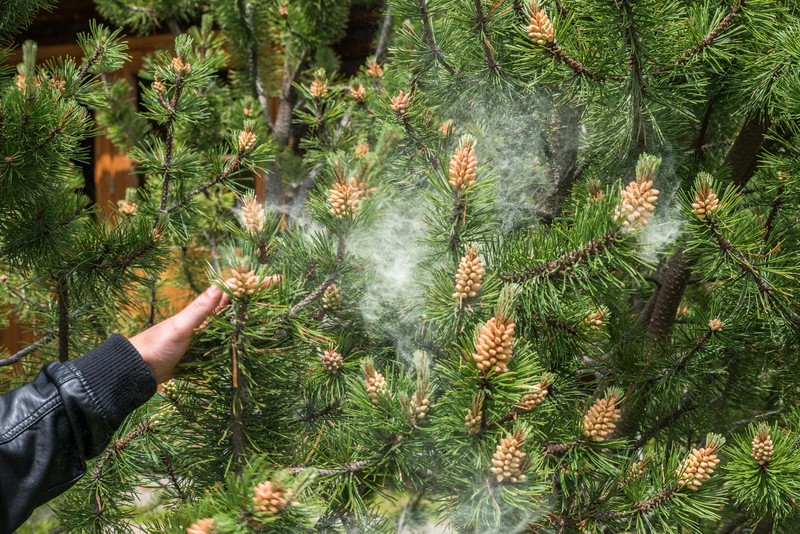
Because the high level of phytoandrogens (plant hormones) present in pine pollen are capable of both supercharging your sex drive and improving your erections.
Unfortunately, one of those phytoandrogens happens to be estrogen, which makes some men hesitant to give pine pollen a try.
In this article, we’ll explore whether or not pine pollen can affect your estrogen levels, while discussing some estrogen-rich foods you should remove from your diet (whether your supplementing with pine pollen or not).
Does Pine Pollen Increase Estrogen? (Nope)
Don’t be fooled by the “phytoestrogen” content in pine pollen, because this plant extract is also chock full of “male hormones” like testosterone, DHEA…
Androstenedione and Androsterone which bind to the androgen receptors in your body.
When consumed, these plant hormones work with our natural ones to actively reduce any free estrogen that might be running rampant in our bodies.
You see, while pine pollen may appear to be little more than yellow dust, it’s actually tree semen.
And obviously, this fact alone tilts it’s hormone profile toward the masculine side of things.
And by consuming it regularly, you can return your testosterone and estrogen levels back to their proper balance.
And your body will achieve this without causing testicular atrophy, because unlike boi-identical human hormones…
These plant hormones are not recognized by the body as human hormones, so it doesn’t reduce natural production.
So you get the plant hormone boost, without the suppression.
And it will work this magic from hormonal chaos caused by manopause, chemical exposure, aging even from estrogen promoting foods.
So, if your estrogen is elevated due to medications, diet, lifestyle, or stress, pine pollen is precisely the solution you need.
That said, I’ve found that you can increase the hormonal kick that Pine Pollen delivers by making a few adjustments to your diet.
Estrogen Lowering Foods
Unlike pine bark, pine pollen is certainly capable of keeping estrogen levels in check, you can easily enhance the process
For starters, you need to get back in the gym and start building some lean muscle mass in order to create a pro-anabolic state in your body.
At the same time, you need to be making an effort to lose weight, reduce stress, and cut toxic chemicals from your life.
But one of the biggest things you can do to lower your estrogen levels is to eat a diet rich in two specific types of foods.
Cruciferous Vegetables
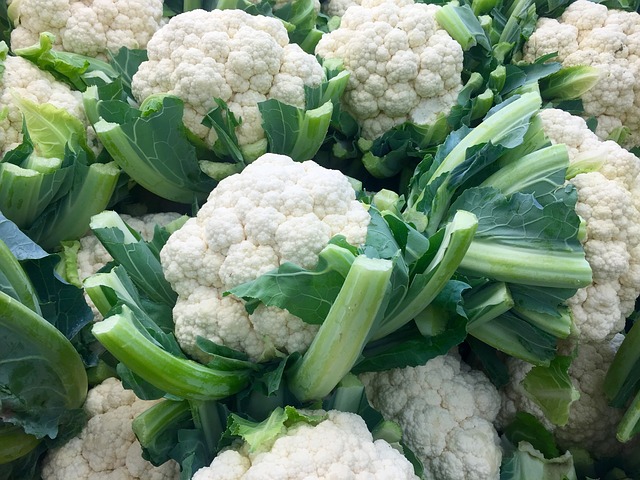
If the word “cruciferous” sounds like a type of tree to you, you’re not far off.
Why?
Because you can identify these veggies based on how much they look like a plant you might find growing on a strange, alien planet.
Common examples of cruciferous veggies include arugula, bok choy, cauliflower, brussels sprouts, kale, and collard greens.
This might sound like “rabbit food” to you, but there’s a reason rabbits are known for their voracious sexual appetites, right?
You see, as it turns out, those foods your Mom always told you to eat are super-rich in a phytochemical called Indole-3-carbinol, which functions as a negative regulator of estrogen.
Indeed, multiple studies have now shown this chemical to not only hinder estrogen synthesis, but also to prevent estrogen-related conditions like gynecomastia (otherwise known as “man boobs”).
And as if that wasn’t enough, Indole-3-carbinol has also displayed an ability to prevent estrogen-related cancers in both men and women.
White Button Mushrooms
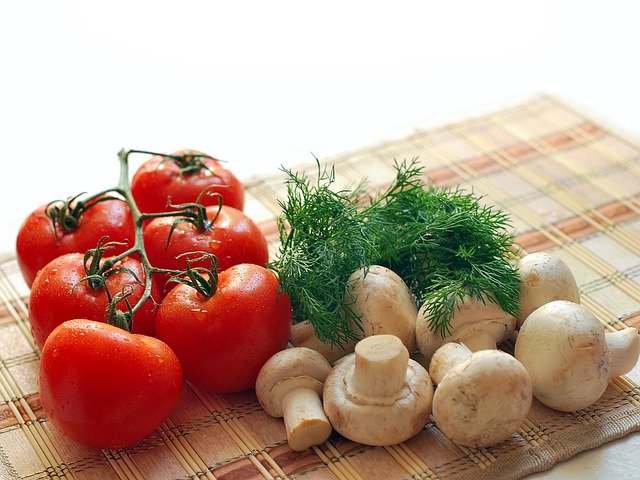
These tiny mushrooms are among the most plentiful fungi in the entire world.
However, that doesn’t mean they don’t have some pretty amazing and unique qualities.
Recent research into the efficacy of white button mushroom extract has found it to be one of the best aromatase inhibitors nature can provide.
This basically means that eating these mushrooms can drastically reduce the conversion of testosterone into estrogen in your body.
Better yet, it does this without having any negative impact on your libido.
As with the cruciferous veggies listed above…
Studies like this one from The Journal of Nutrition, indicate that this effect is so strong it protects against the development of estrogen-driven cancer cells.
Foods to Avoid While Using Pine Pollen
If you’re supplementing with pine pollen in order to raise your testosterone levels, you need to make sure you aren’t counteracting the process by eating a diet rich in testosterone-killing foods.
After all, many things we eat and drink everyday contain chemicals and other compounds that slaughter our testes’ ability to function properly.
Here are some prime culprits:
Hoppy Beer (and Alcohol in General)
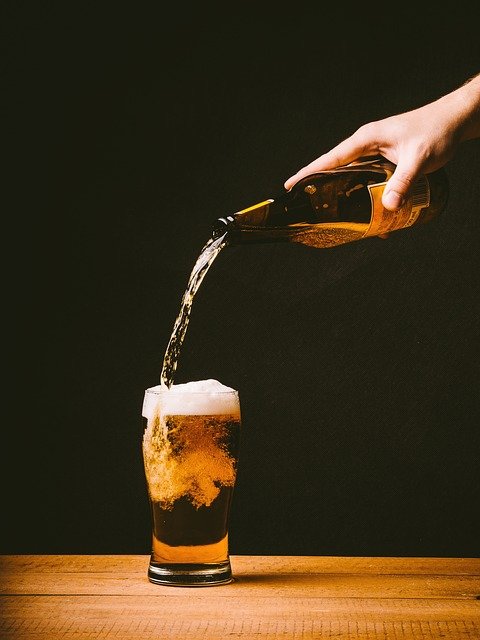
Sorry guys, but those tasty IPAs are doing you more harm than good. Remember, whatever else they may be, hops are flowering plants.
And studies like this one from The Journal of Clinical Endocrinology have found that hops contain potent phytoestrogen properties.
In fact, if you read the ingredients on any breast enlargement pill on the market, odds are you’ll find hops on the list.
This is all due to a compound called 8-prenylnaringenin, which the above report states may even account for menstrual cycle disturbances among females who harvest the plant!
Of course, consuming too much alcohol of any type can cause your testosterone levels to plunge into the danger zone.
In fact, just 3 drinks a day has been shown to decrease a man’s testosterone levels by nearly 7% in only three weeks!
Soy Foods
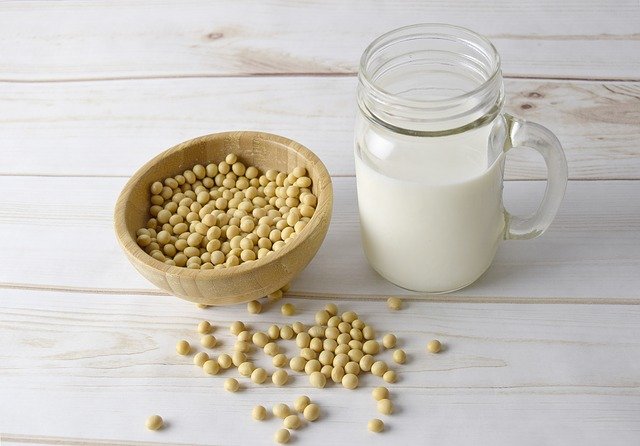
As it turns out, all those meatheads running around the gym calling each other “soy boys” might actually have a point about this popular bean.
Be it edamame, tofu or soy milk, soy-based foods are extremely high in phytoestrogens.
And unlike our beloved pine pollen, there are no high levels of plant testosterone to back them up.
In one study, 35 men were given soy protein isolate for a period of roughly three months.
During this time, their testosterone was lowered by roughly 9%.
The study also recorded disturbances among several other hormones, which may indicate that soy is just a general “no-no” for humans of either gender.
Low Quality N6 Vegetable Oils
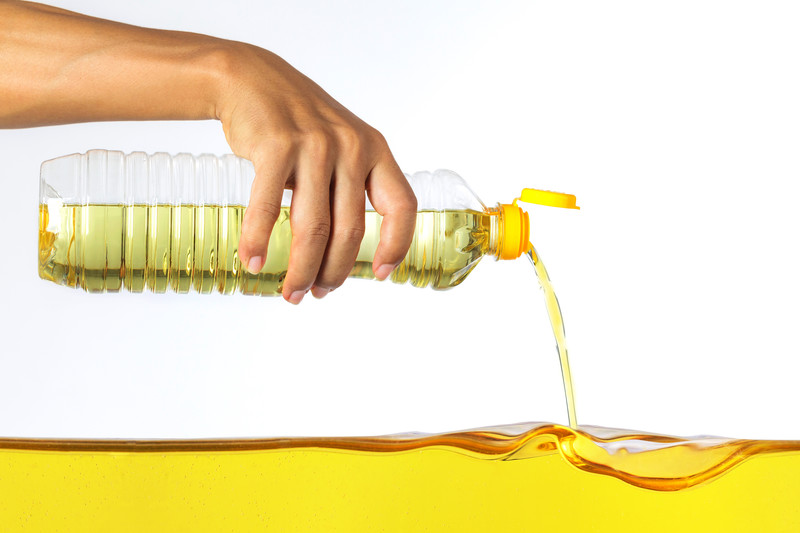
“Vegetables = Good” is an equation that many of us have adopted as true.
However, there are some serious exceptions to that rule.
A primary example is vegetable oil (canola, soybean, corn oil, and cottonseed).
These food additives are absolutely chock full of cheap polyunsaturated fatty acids, which have been shown to reduce testosterone levels in even moderate amounts.
In one particularly revealing study, Japanese men who consumed polyunsaturated fats displayed significantly lower testosterone levels than men who avoided these fats.
You can read more on dietary fat and sexual health here.
Processed Foods
If you’re yet to discover the truth about processed foods, consider this your big “eye-opener.”
You see, the companies that mass produce foods for national or international consumption could care less about what actually goes into them.
That’s why you often see such high levels of sugar, sodium, and preservatives. But the worst of the worst is trans fats.
Trans fats are artificial fatty acids created by adding hydrogen to liquid vegetable oils (see above).
They are often found in baked goods, microwaved popcorn, frozen pizza, margarine, and fried foods.
Unfortunately, a number of studies have linked these fats to heart disease, diabetes, inflammation, and – as you might expect – lowered testosterone.
In one particularly critical study, over 200 men who consumed trans fats regularly were found to display testosterone levels up to 15% lower than their peers.
As if that weren’t bad enough, this was coupled with a 37% lower sperm count and a significant reduction in testicular volume!
Does Pine Pollen Increase Estrogen Conclusion:
All the evidence indicates that pine pollen not only does not increase estrogen levels, but that it does the exact opposite, especially when megadosing.
In fact, it keeps male estrogen levels in check better than any natural supplement I’ve ever come across.
However, if you’re drinking too much, munching on processed foods, and frying soy-based meals in vegetable oil every night..
All the pine pollen in the world won’t be able to help you.
But if you make smart dietary choices, take steps to avoid endocrine disrupting chemicals and accumulate a few extra pound of lean muscle mass…
You’ll create the perfect environment for Pine Pollen to keep estrogen levels in check and keep testosterone in the drivers seat right where it belongs.
